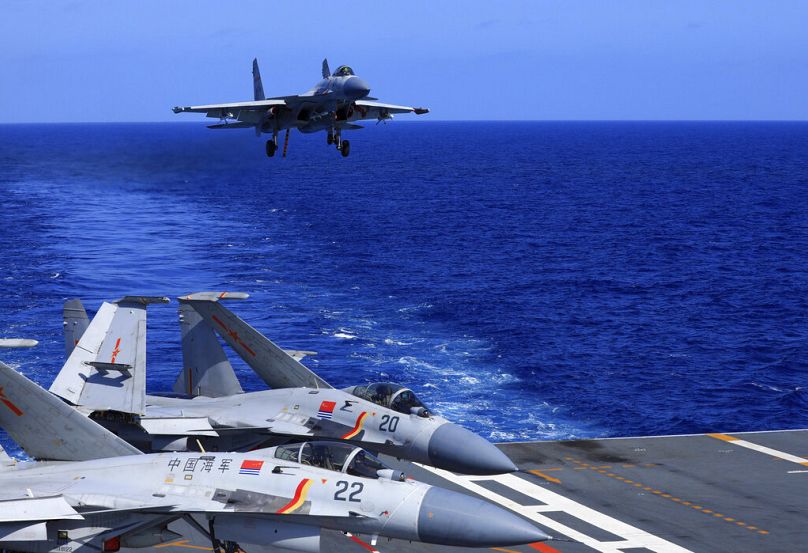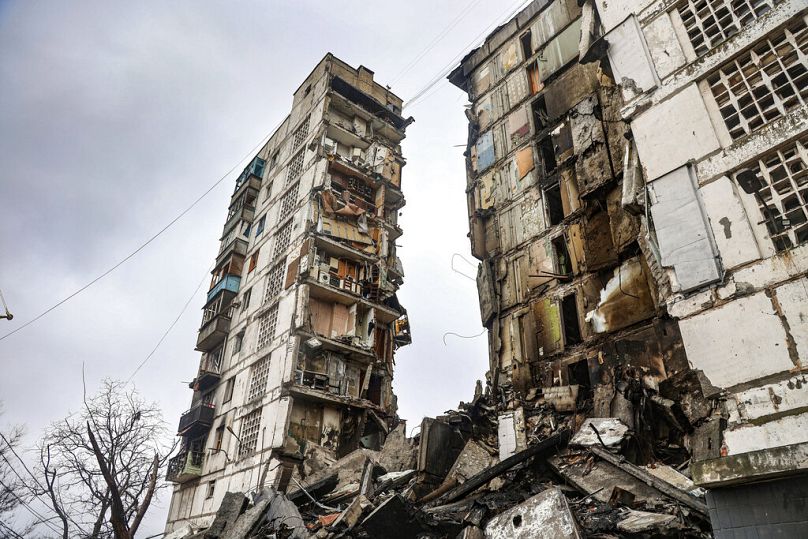Peace, money or friendship - what does China want out of the conflict in Ukraine?
“Beijing will have to make its own decisions about... whether it provides military assistance, but if it goes down that road it will come at real costs,” US national security adviser Jake Sullivan told CNN on Monday.
 ADVERTISEMENT
ADVERTISEMENT
 ADVERTISEMENT
ADVERTISEMENT
His comment is the latest in a string of warnings for China not to aid Russia’s deadly assault on Ukraine.
But Beijing’s stance on the Ukraine war is complicated, pushed and pulled in competing directions.
Nowhere more so than militarily.
With Russian military stocks exhausted after a long year of grinding warfare, Dani Belo, Assistant Professor of International Relations at Webster University, says it is "possible" China could supply Moscow with lethal aid.
However, he believes it will most likely confine itself to supplying “ammunition, uniforms and other basic provisions” for fear of risking an escalation with the US and its allies.
‘China’s got itself in a bit of a mess’
Another reason why Beijing may shy away from providing heavier weapons, such as missiles and tanks, is that this could jeopardise China’s position as a conflict mediator.
“It would be surprising if they went that far because it would take away any pretence of being an honest broker who could help bring about a solution to the conflict,” Professor Shaun Breslin, a leading academic expert on Chinese politics at Warwick University, told Euronews.
On Friday, China called for a comprehensive ceasefire in Ukraine, touting its own peace plan that urged all parties to “exercise restraint, avoid fanning the flames… and prevent the crisis from… spiralling out of control.”
What the Chinese are doing here, says Prof Breslin, is position themselves as a “very different type of great power from the West.”
Unlike the US and its allies, which have emphatically supported Ukraine with oodles of military and financial support, Beijing has focused on finding solutions through dialogue and peace.
But this stance is a “delicate balancing act”, highlighting tensions within Chinese foreign policy, adds Prof Breslin.
“While they're happy to blame the West for the conflict and support Russian claims they have genuine security concerns by the potential expansion of NATO… China has [also] pushed its credentials as a force of peace and stability in the world… adhering to non-interference in politics, sovereignty and boundaries,” he said.
“There's an asymmetry to their neutrality.”
What’s more, even if Beijing can get both Kyiv and Moscow around the negotiating table, there is no guarantee they will comply with a Chinese-led diplomatic settlement.
“China’s plan is aspirational. But what happens if they don’t go along with what you say? It's quite difficult to see how their plan can lead to anything,” said Prof Beslin.
“Like quite a lot of countries, the Chinese would quite like all this to go away. They would much rather the war never happened,” he added.
‘Beijing wants a solid footprint in Eastern Europe’
A key driver of China’s stance towards the Ukraine war is economics.
Before the 2022 invasion, Ukrainian President Volodymyr Zelenskyy welcomed Chinese investment in the country.
Beijing was the single largest investor in Ukraine’s infrastructure before the conflict, and is a major consumer of Russian energy, which helps keep Putin’s war machine afloat.
Despite analysts predicting the contrary, China has not imported significantly more energy from Russia since the conflict began, amid European bans on Russian oil and gas.
These economic motivations give Beijing “significant leverage” as a mediator, says Prof Belo.
He told Euronews Beijing will likely try to secure a prominent role in post-conflict reconstruction – not out of the goodness of its heart, but because it is lucrative and could increase its “strategic footprint” in Eastern Europe.
“China is going to want to be integrated into Ukraine’s economy in a much more substantial way after the war,” Prof Belo continued.
An ongoing study from the Kyiv School of Economics calculated that every week, Ukraine suffers about $4.5 billion worth of damage to its civilian infrastructure. It forecast the country's total economic losses could rise to around $600 billion.
Whatever happens, one first vital step will be a bilateral meeting between China and Ukraine – as Zelenskyy recently requested.
“China is really the player to watch [when it comes to Ukraine],” said Prof Belo. “Diplomatically, militarily and globally it's the player that often tilts the scales.”












